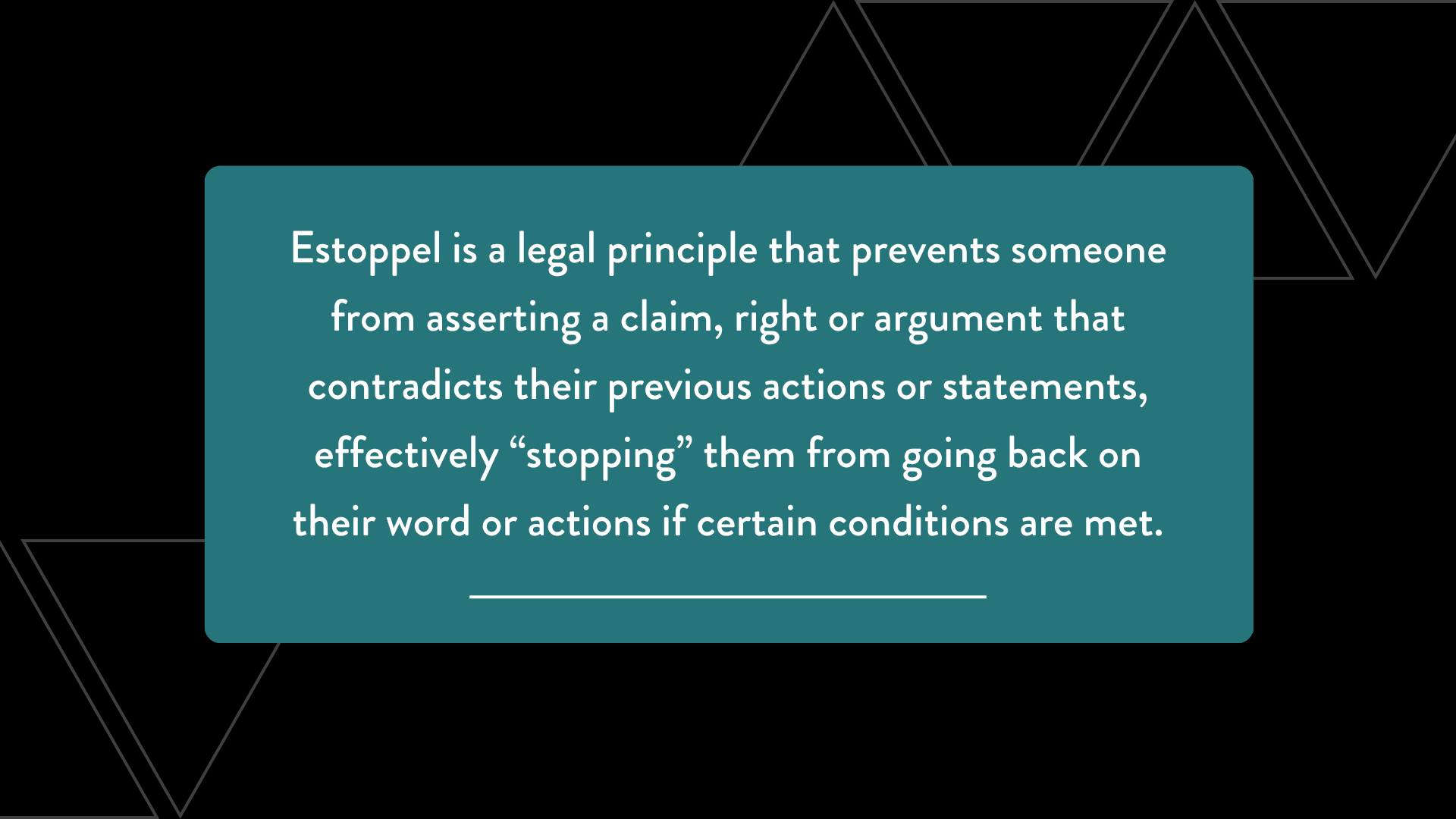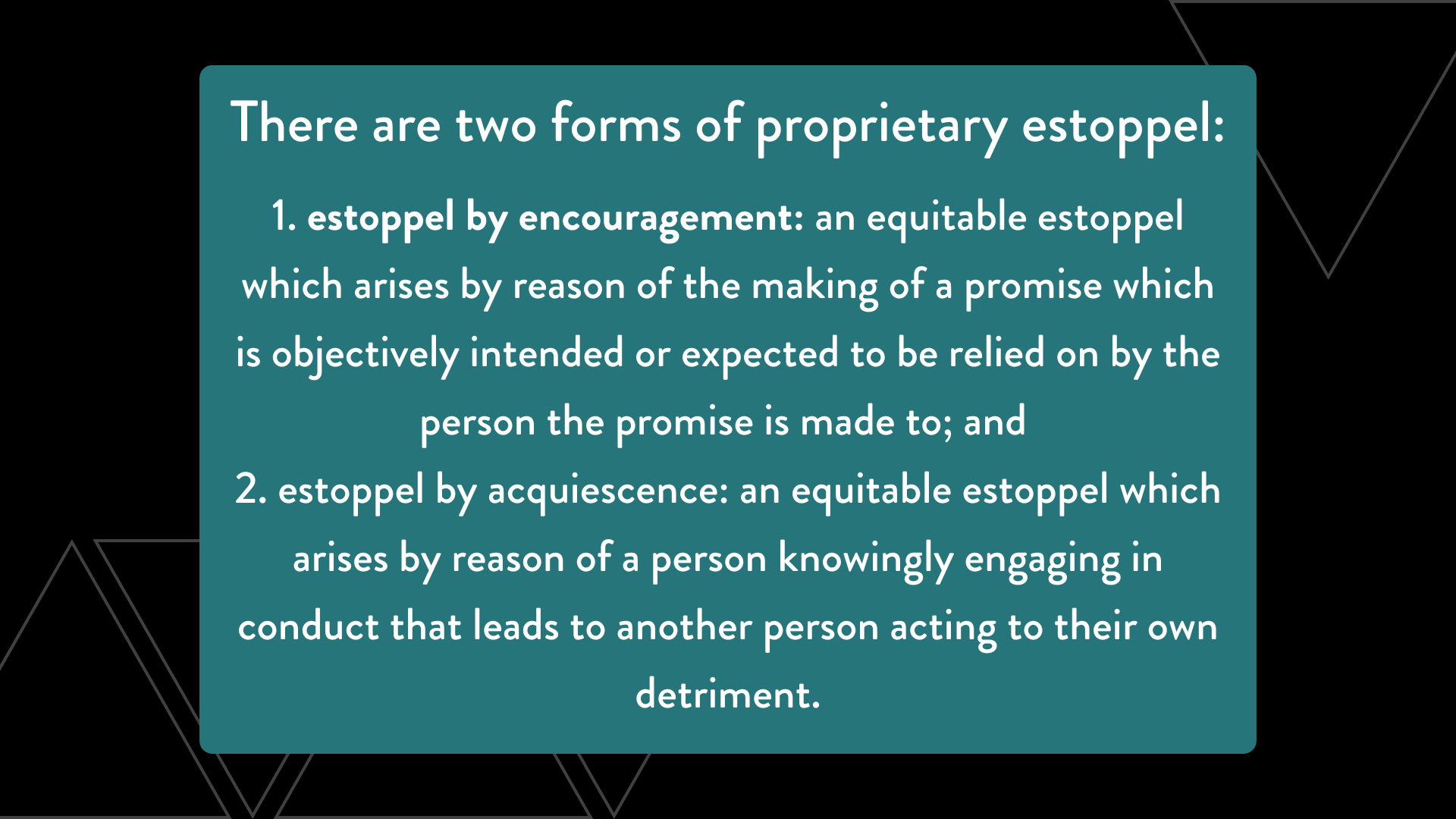A promise made can be a promise enforced - even if it's verbal
09 Jun 2025
A common question from our clients is whether a verbal promise is binding.
Can they rely on and enforce a promise given orally? According to the High Court of Australia, the answer is ‘yes’, provided certain conditions are met.
In the recent decision of Kramer v Stone, the High Court confirmed that a clear and unequivocal oral promise can be legally binding, even if the person who made the promise did nothing further to encourage reliance and did not know the promise was being relied upon.
This is a particularly important decision for economically wealthy Western Australia, given the vast intergenerational wealth transfer that is projected to take place in Australia over the next two decades.
The Facts
Dame Leonie and her husband, Dr Harry, owned a 100-acre farming property in the Colo Valley, New South Wales. They had two daughters, Hilary and Jocelyn.
For almost 40 years, David Stone earned an irregular and meagre income working on the farm as a “share farmer”.
Over time, David was made three verbal promises by Dr Harry and Dame Leonie that he would inherit the farm on the owners’ death.
In reliance on these promises, David continued to work on the farm for another 23 years. Without the promises, David would have terminated the share farming agreement, obtained higher-paying employment, and enjoyed a new lifestyle free from some of the hardships endured on the farm.
A dispute arose when Dame Leonie passed away in 2016. Her final will left the farm to her daughter Hilary, not David. The farm was valued at the time of the grant of probate in December 2016 at $1.5 million. David was left a gift of $200,000.
The Decision
At the initial trial, the Supreme Court of New South Wales concluded that these circumstances gave rise to an ‘estoppel’ against the deceased estate of Dame Leonie, requiring title to the farm to be held on trust for David.


The executors of the estate appealed the decision to the Court of Appeal and subsequently, to the High Court on the basis that an equitable estoppel by encouragement requires subsequent encouragement by the promisor (Dame Leonie) after the promise was made and actual knowledge by the promisor of the promisee’s (David) reliance.
To support their argument, the executors of the deceased estate tried to argue the application of other equitable principles, being failed gifts and estoppel by acquiescence.
However, the High Court rejected both grounds of appeal, finding in favour of David.
In doing so, the High Court affirmed the six requirements to establish an equitable estoppel as stated by Justice Brennan in Waltons Stores (Interstate) Ltd v Maher (1988) 164 CLR 387:
- assumption or expectation: the promisee must assume or expect a particular legal relationship existed or would exist between themself and the promisor;
- inducement: the promisor must induce or encourage the assumption or expectation;
- reliance: the promisee must act or refrain from acting in reliance on the assumption or expectation;
- knowledge or intention: the promisor must know or intend for the promisee to act in reliance on the assumption or expectation;
- detriment:
- the promisee’s action or inaction would result in detriment if the assumption or expectation is not fulfilled; and
- the promisor failed to act to avoid that detriment being caused, whether by failing to fulfil the assumption or expectation or otherwise.
The High Court held that subsequent encouragement or actual knowledge of reliance is not required for estoppel by encouragement to apply.
Takeaway
While this case reaffirmed the existing legal principles around estoppel, it brought valuable clarity to the doctrine of estoppel by encouragement, specifically, that it does not require subsequent encouragement or actual knowledge of reliance.
The prospect of lifechanging inheritance often results in family disputes and contested probate cases where the validity and enforceability of wills are challenged, sometimes basing their inconsistency on earlier verbal promises.
If you were promised an inheritance, but not left what you were promised in a will, you may have grounds to enforce that promise. This may be the case even if the person who made the promise to you did nothing further to encourage you to rely upon it or did not know that you were relying on the promise.
Click here to explore the case in more detail.
For further information, please reach out to Marcus Pullen, Partner Disputes.